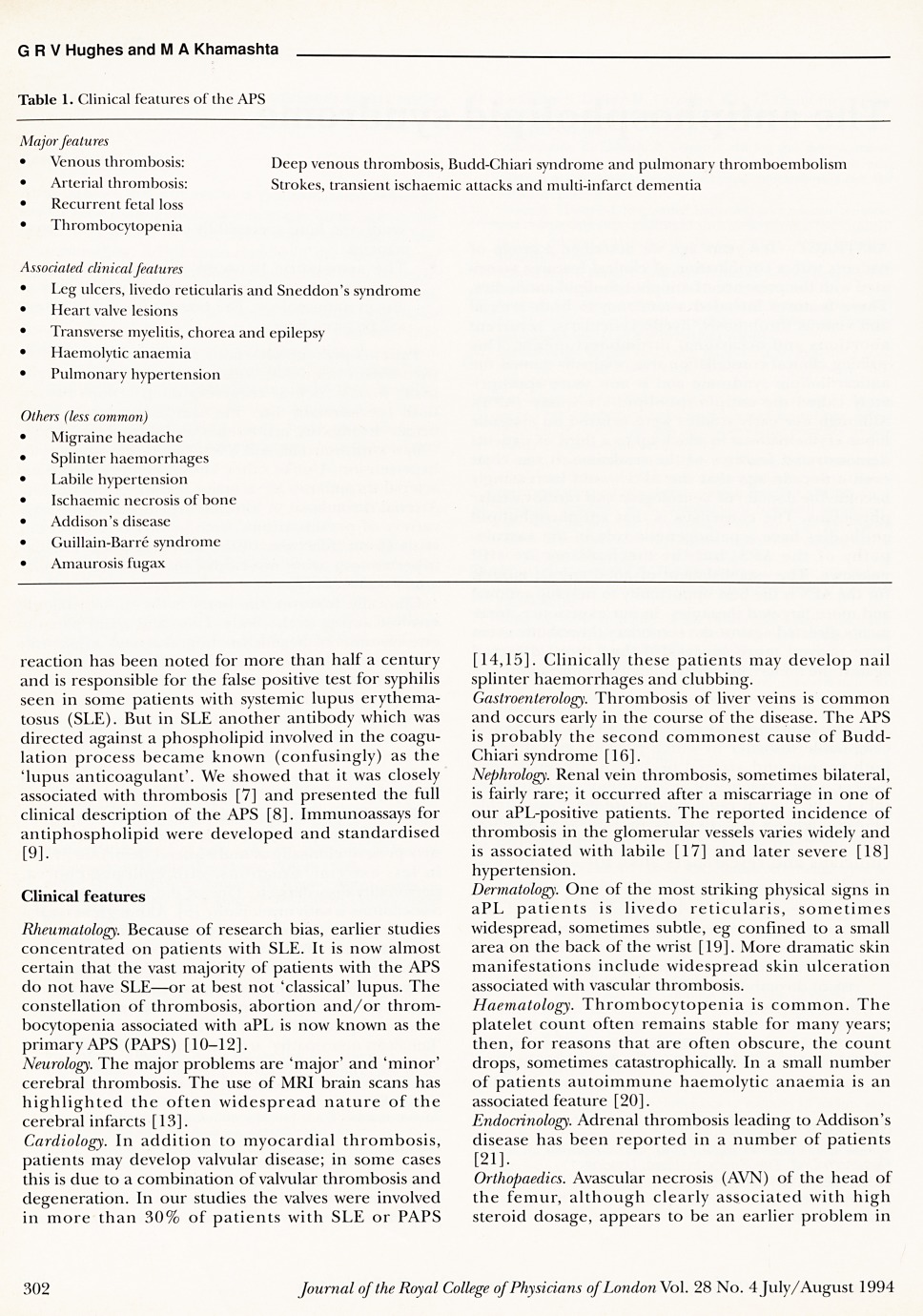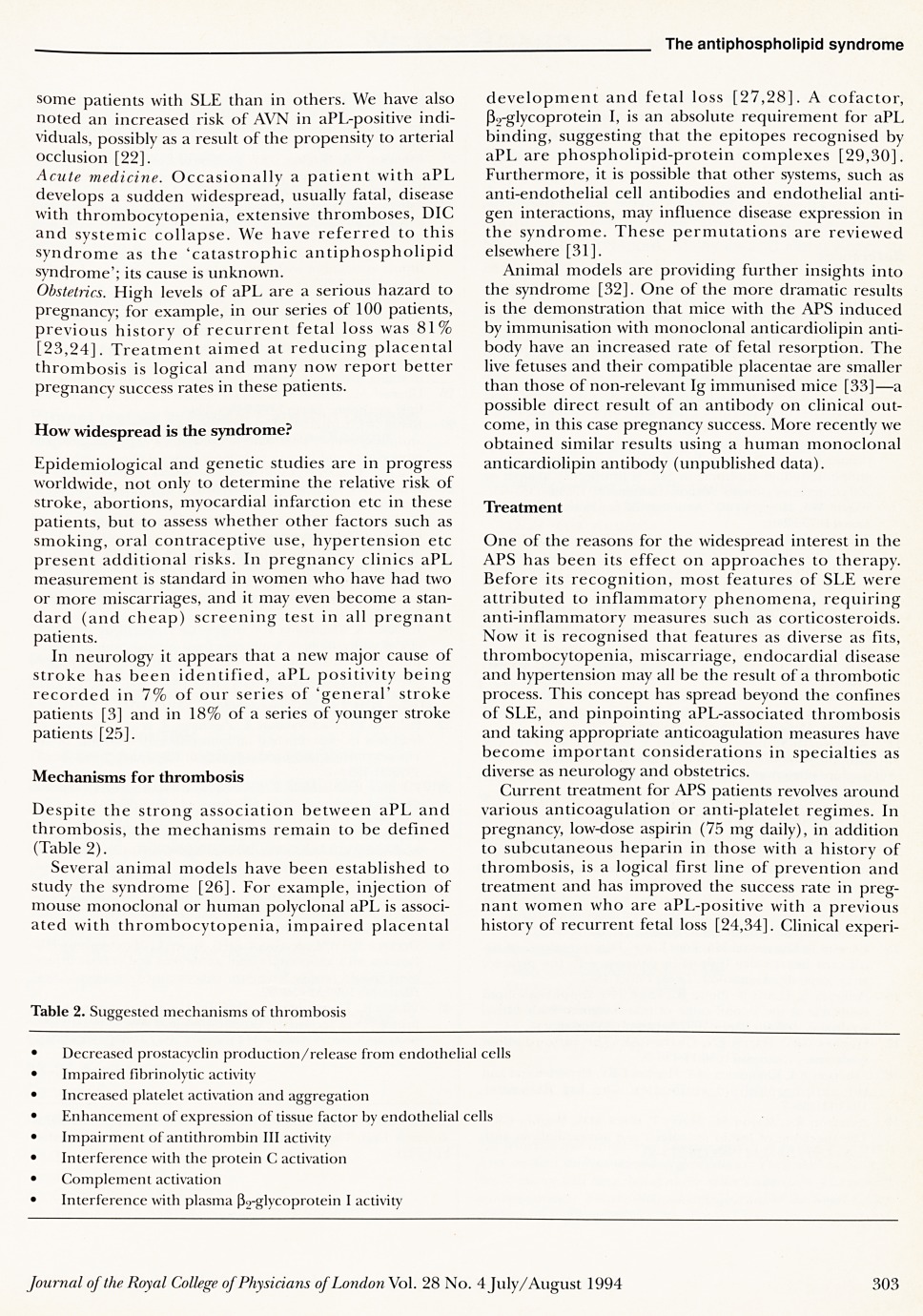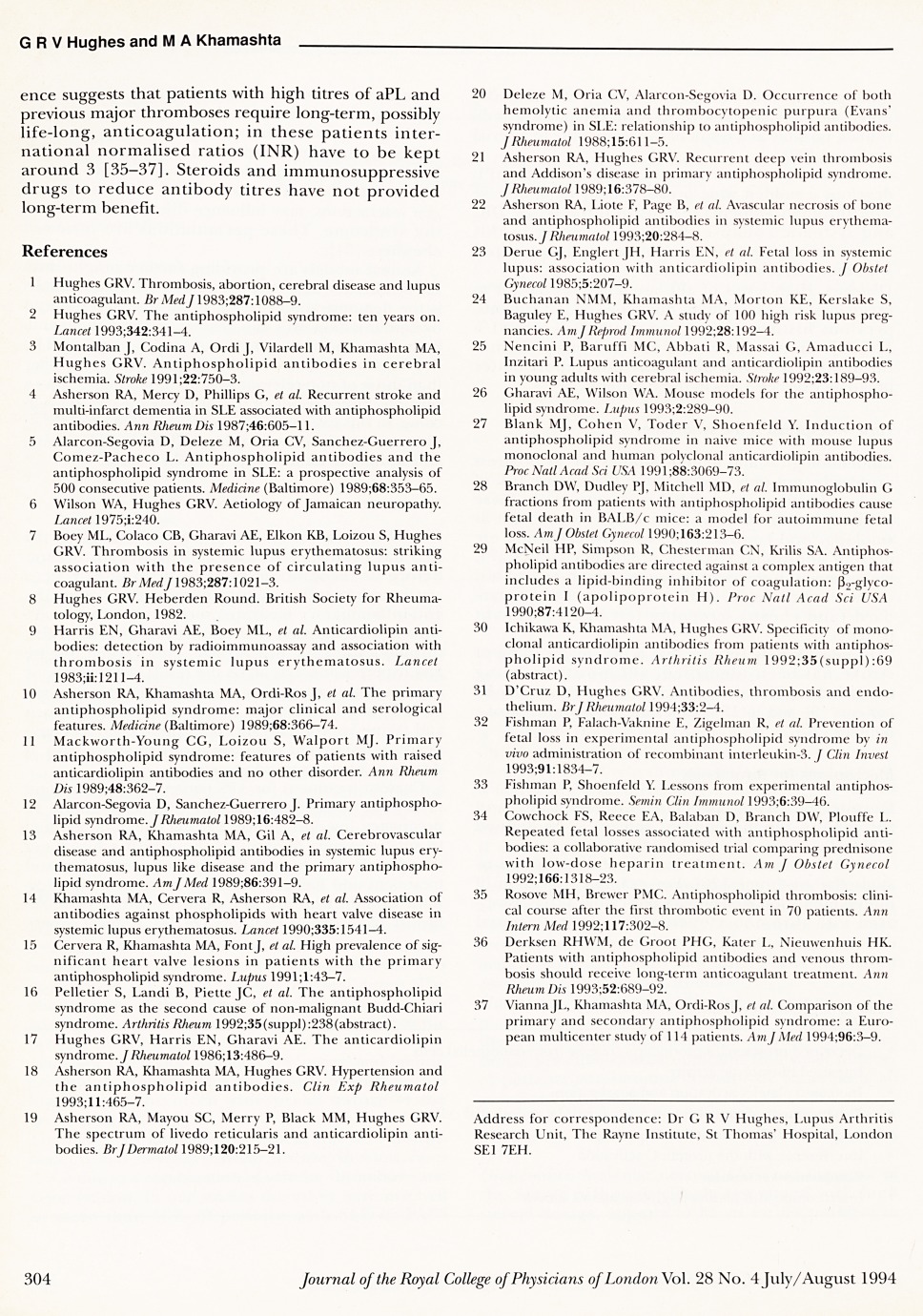Abstract
Ten years ago we described a group of patients with a combination of clinical features associated with the presence of antiphospholipid antibodies. These features included a tendency to both arterial and venous thrombosis, livedo reticularis, recurrent abortions and occasional thrombocytopenia. This striking clinical constellation was originally named the anticardiolipin syndrome and is now more appropriately called the antiphospholipid syndrome (APS). Although our early studies were centred on systemic lupus erythematosus in which up to a third of patients demonstrated features of the syndrome, it was clear even a decade ago that the APS would increasingly become the domain of neurologists and cardiovascular physicians. The consensus is that antiphospholipid antibodies have a pathogenetic role in the vasculopathy of the APS, but the mechanisms are still unknown. The establishment of good animal models for the APS is the best opportunity to develop rational and more targeted therapies. In our experience, treatments directed against the secondary thrombotic event have proved more successful than those directed against the underlying immunological abnormality.
Full text
PDF



Contributor Information
Graham R V Hughes, Consultant Rheumatologist; Head, Lupus Arthritis Research Unit, The Rayne Institute, London.
Munther A Khamashta, Deputy Head, Lupus Arthritis Research Unit, The Rayne Institute, London.


